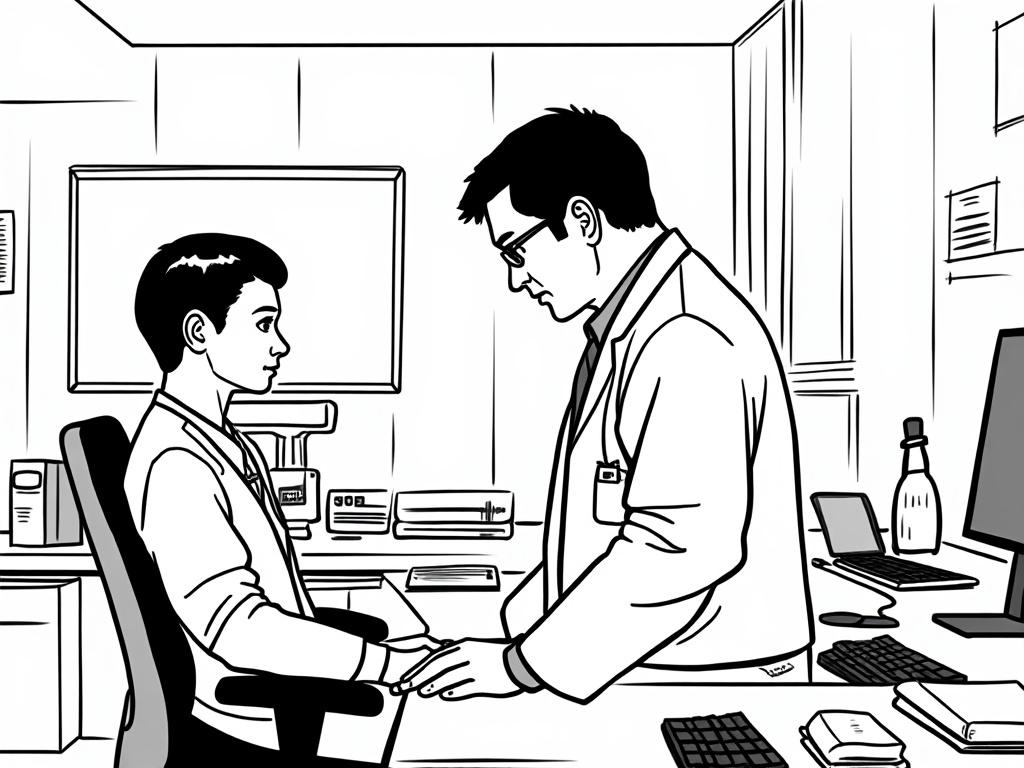
Dubai Medical Test for Employment Visa: What to Expect
Reading time: 8 minutes
Planning to work in Dubai? You’re about to embark on an exciting journey, but first comes the medical examination—a mandatory step that often leaves newcomers feeling uncertain. Let’s decode this process and turn what might seem like a bureaucratic hurdle into a smooth stepping stone toward your Dubai career.
Table of Contents
- Understanding Dubai’s Medical Test Requirements
- The Step-by-Step Medical Examination Process
- What Medical Tests You’ll Undergo
- How to Prepare for Your Medical Test
- Costs and Timeline Breakdown
- Common Challenges and Solutions
- Your Success Blueprint: From Test to Visa
- Frequently Asked Questions
Understanding Dubai’s Medical Test Requirements
Ever wondered why Dubai requires medical tests for employment visas? It’s not bureaucratic red tape—it’s a comprehensive public health strategy that protects both residents and newcomers.
The UAE’s medical examination system serves dual purposes: ensuring workplace safety and maintaining public health standards. According to the UAE Ministry of Health, over 95% of employment visa applications complete their medical tests successfully on the first attempt when properly prepared.
Who Needs the Medical Test?
Here’s the straight talk: Everyone applying for a UAE employment visa needs this medical examination, regardless of profession or nationality. Whether you’re a software engineer, teacher, or construction worker, this requirement applies universally.
Key Requirements Include:
- All employment visa applicants aged 18 and above
- Family members applying for dependent visas
- Individuals changing employment within the UAE
- Those renewing expired residence visas
The Legal Framework
The medical test requirement stems from UAE Federal Law No. 8 of 1980, updated regularly to reflect modern health standards. Dr. Sarah Ahmed, a medical consultant with Dubai Health Authority, explains: “These examinations aren’t just formalities—they’re designed to identify communicable diseases early and ensure appropriate medical support for residents.”
The Step-by-Step Medical Examination Process
Let’s walk through what actually happens during your medical test appointment. Think of this as your roadmap to success.
Phase 1: Initial Registration and Documentation
Upon arrival at an approved medical center, you’ll present your documents and complete registration. The process typically begins with administrative verification—ensure you have all required paperwork ready.
Essential Documents Checklist:
- Original passport with entry stamp
- Passport-sized photographs (usually 2-4 copies)
- Completed application form
- Medical examination fee receipt
Phase 2: Medical History and Basic Assessment
A qualified medical professional will review your health history and conduct preliminary assessments. Be honest about any existing medical conditions—transparency actually helps ensure you receive appropriate care and support.
Quick Scenario: Imagine you have diabetes. Disclosing this information doesn’t disqualify you; instead, it ensures proper medical monitoring and workplace accommodations if needed.
Phase 3: Laboratory and Diagnostic Tests
This phase involves the core medical examinations. Most centers use modern equipment and follow international standards, making the process efficient and comfortable.
| Test Category | Purpose | Duration | Preparation Required |
|---|---|---|---|
| Blood Tests | Screen for infectious diseases | 5-10 minutes | 8-hour fasting recommended |
| Chest X-Ray | Detect tuberculosis and lung conditions | 2-3 minutes | Remove jewelry and metal objects |
| Physical Examination | General health assessment | 10-15 minutes | Comfortable clothing recommended |
| Vision Test | Eye health and visual acuity | 3-5 minutes | Bring glasses/contacts if used |
What Medical Tests You’ll Undergo
Understanding each test helps eliminate anxiety and ensures you’re properly prepared. Let’s break down the specific examinations you’ll encounter.
Blood-Based Screenings
The blood tests screen for several conditions, including HIV, Hepatitis B and C, and syphilis. These tests use advanced technology with high accuracy rates—false positives are rare when conducted at approved facilities.
Important Note: If you test positive for any condition, it doesn’t automatically mean visa rejection. The UAE has evolved its approach, focusing on treatment and management rather than exclusion for many conditions.
Chest X-Ray Examination
This screening primarily detects tuberculosis, a key public health concern. Modern digital X-ray equipment provides clear images while minimizing radiation exposure—typically less than a standard dental X-ray.
Specialized Tests by Profession
Certain professions require additional screenings:
- Food handlers: Stool examination for parasites
- Healthcare workers: Enhanced infectious disease screening
- Domestic workers: Pregnancy test for female applicants
- Drivers: Enhanced vision and hearing tests
How to Prepare for Your Medical Test
Well, here’s the straight talk: Proper preparation isn’t about “passing” the test—it’s about ensuring accurate results and a smooth process.
Pre-Test Preparation Strategy
24-48 Hours Before:
- Get adequate sleep (7-8 hours) for accurate blood pressure readings
- Stay hydrated but avoid excessive alcohol consumption
- Gather all required documents in a organized folder
- Plan your route to the medical center
Day of the Test:
- Fast for 8-10 hours before blood tests if recommended
- Wear comfortable, easily removable clothing
- Arrive 15-30 minutes early for registration
- Bring entertainment for potential waiting periods
Managing Pre-Test Anxiety
Feeling nervous is completely normal. Sarah, a marketing manager who recently completed her Dubai medical test, shares: “I was worried about everything, but the staff were professional and the process was much quicker than expected. The hardest part was the waiting, not the actual tests.”
Costs and Timeline Breakdown
Let’s address the practical concerns: how much will this cost and how long will it take?
Medical Test Cost Comparison
Medical Test Fees by Center Type (AED)
Timeline Expectations
Same-Day Process: Most centers complete examinations within 2-4 hours, including waiting time.
Results Processing: Standard results are available within 24-48 hours, with express services offering same-day results for an additional fee.
Pro Tip: Book appointments during weekday mornings for shorter waiting times and faster service.
Common Challenges and Solutions
Let’s tackle the real challenges people face and provide practical solutions.
Challenge 1: Document-Related Issues
The Problem: Missing or incorrect documentation causing appointment delays.
The Solution: Create a comprehensive document checklist and verify requirements with your chosen medical center 24 hours before your appointment. Keep digital copies as backup.
Real-World Example: Ahmed, an IT consultant, missed his first appointment because his passport photos didn’t meet size requirements. He learned to call ahead and confirm specific photo dimensions—a 5-minute call saved him a day’s delay.
Challenge 2: Language Barriers
The Problem: Communication difficulties during medical consultations.
The Solution: Most approved medical centers have multilingual staff. Request an interpreter when booking if needed, or bring a friend who speaks Arabic or English fluently.
Challenge 3: Managing Existing Medical Conditions
The Problem: Uncertainty about how existing conditions affect visa approval.
The Solution: Prepare a comprehensive medical history document translated into English. Consult with the medical center beforehand about your specific condition—transparency often leads to better outcomes than concealment.
Your Success Blueprint: From Test to Visa
Ready to transform this process from a source of stress into a confident step forward? Here’s your strategic roadmap:
Immediate Action Steps (Next 48 Hours)
1. Research and Select Your Medical Center
Choose based on location, reputation, and language support rather than just cost. Read recent reviews and verify government approval status.
2. Schedule Your Appointment Strategically
Book for weekday mornings when possible. Avoid Fridays and Saturdays when centers are busiest. Allow buffer time in your schedule for unexpected delays.
3. Prepare Your Documentation Portfolio
Create both physical and digital copies of all documents. Include your employment offer letter, visa application reference, and any existing medical records.
Pre-Test Optimization (1 Week Before)
4. Health Preparation Protocol
Maintain regular sleep patterns, stay hydrated, and avoid alcohol 48 hours before testing. If you wear glasses or contacts, ensure they’re clean and bring backup options.
5. Logistics Coordination
Plan your transportation route, identify parking options, and download the medical center’s contact information. Consider bringing entertainment for waiting periods.
Future-Proofing Your Dubai Journey
The medical test is just the beginning of your Dubai experience. Understanding this process demonstrates your commitment to compliance—a valuable trait in UAE’s business environment. As Dubai continues expanding its global talent attraction initiatives, streamlined processes like these medical examinations become stepping stones rather than obstacles.
Consider this: How will mastering this administrative process prepare you for other aspects of working and living in Dubai? The attention to detail, preparation, and cultural awareness you develop here will serve you well in your professional endeavors.
Your medical test represents more than health screening—it’s your first official step into Dubai’s professional ecosystem. Approach it with confidence, preparation, and the knowledge that you’re joining a diverse, dynamic workforce that values both health and professional excellence.
Frequently Asked Questions
Can I choose any medical center for my employment visa test?
No, you must use a medical center approved by the UAE Ministry of Health. These facilities meet specific standards and connect directly to government systems for result processing. Using an unapproved center will result in invalid results and visa processing delays. Check the official DHA or MOH website for current approved facility lists.
What happens if my medical test results show a health condition?
The UAE has evolved its approach significantly. Many conditions that previously resulted in visa rejection now require medical management plans instead. You’ll typically consult with a specialist who determines if your condition poses public health risks or requires workplace accommodations. Conditions like controlled diabetes, managed hypertension, or corrected vision issues rarely affect visa approval.
How long are my medical test results valid for visa processing?
Medical test results remain valid for 60 days from the issue date for visa processing purposes. If your visa processing extends beyond this timeframe, you’ll need to repeat the medical examination. Plan your test timing accordingly—ideally within 30 days of submitting your visa application to allow processing buffer time.

Article reviewed by Oliver Brown, Venture Capital Veteran | Funding the Next Big Disruptors, on June 4, 2025






